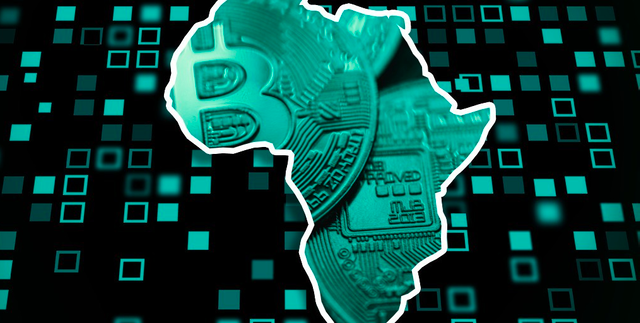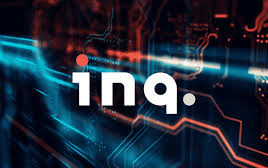EchoVC, a pan-African VC firm with a global presence, has announced a fresh $8 million fund dedicated to blockchain startups in Africa. Dubbed the EchoVC Chain Blockchain Fund, the fresh capital will be deployed to blockchain startups that are substantiating the utility of blockchain products and solving some of Africa’s pressing challenges.
EchoVC is notably raising this capital at a time when overall customer and investor trust in crypto and blockchain startups seems to be hanging by a thread. The past year has not been rosy for blockchain players in African tech. First, the global funding downturn struck the crypto space and caused a 75% Q4 decline in crypto investments globally; and following that was the collapse of Sam Bankman-Fried’s blockchain empire, FTX. The company, with its extensive roots and investments in Africa, filed for bankruptcy, and sucked away significant runway funds from African blockchain-powered startups, including Nestcoin and Chipper Cash.
In the first quarter of 2023, promising blockchain startup, Fluidcoins was desperately sold off after its founder, Lanre Adenowo, couldn’t secure funds beyond an initial $150,000 from almost two years prior. It was the first time a crypto startup was being sold in Nigeria, but the struggle behind the sale raised arguments for a suffering blockchain ecosystem, rather than an expanding one.
EchoVC’s founder and general managing partner, Eghosa Omoigui, acknowledge these struggles, yet, he’s convinced that there is no better time than now to launch the blockchain-focused fund for African startups.
“The global investment crunch is impacting all tech sectors, not just crypto, and has caused a decrease in valuations of startups across all tech sectors. However this allows us to invest at lower entry valuations on average than in prior years,” Omoigui said in a chat with TechCabal.
“While this has somewhat reduced VC appetite for crypto investing, we continue to remain excited about the useful applications of crypto and blockchain in Africa, and believe that crypto founders in Africa will continue to build for functionality to solve problems in Africa,” he added.
EchoVC, a sector-agnostic venture capital firm, made its foray into blockchain investing in 2021 by participating in Fonbnk’s $3.5 million seed round. Since then, the VC has invested in seven blockchain-powered startups across three sub-sectors: B2B infrastructure, B2C DeFi, and market making. For the pan-African VC firm, blockchain’s ability to tokenise and scale autonomously is exciting and, obviously, compelling enough to create a special fund for, especially in a market that is underserved.
Underrepresented founders and underserved markets
Branded as the Sequoia Capital for underrepresented founders and underserved markets, EchoVC has deployed over $41 million into about 36 different startups globally. Its footprints in Africa—a typically underserved market—span Nigeria, Kenya, South Africa, and Uganda.
Seen through the lens of blockchain investing, Africa’s position as an underserved market brings to fore the argument of whether the continent is ready to adopt blockchain technology solutions at scale. Granted, Africa’s got a wild thirst for crypto. Countries such as Nigeria have topped lists of global crypto adoption and usage, falling behind only the US and Russia in traded crypto volumes in 2020. However, this impressive feat becomes questionable when one considers the utility of crypto in Nigeria; it hardly goes beyond P2P transactions and, to a smaller degree, remittances.
Solutions like Fluidcoins, which introduced crypto-powered wallets, savings, and marketplaces, struggled to get off the ground in Nigeria, a country globally recognised to have the highest users of cryptocurrency. Similarly, Lazerpay, a blockchain solution that enables businesses to receive crypto payments, is going through its dark valley. Last year, its supposed lead investor pulled out from the company’s seed raise, causing the firm to lay off staff in order to extend runway.
Question: Is Africa really underserved, or are Africans averse to crypto adoption beyond traditional payment alternatives? EchoVC believes the former, as it strives to fund the continent into a hub that embraces blockchain solutions with real utility.
“The blockchain ecosystem is still nascent in Africa. At EchoVC, we aim to invest in and help build startups that become the future African success stories. We are completely focused on founders building highly functional and resilient products that create limited to zero cognitive loads,” Omoigui said.
“The companies we back are playing across the time and utility spectrum: attempting new innovations that help refactor, augment, and improve traditional solutions (rather than disrupting them outright), but also have paths to long-term opportunities with future innovations that are in line with the respective founder’s visions,” he added.
EchoVC’s investment strategy
EchoVC plans to deploy the $8 million through three focus areas. First, the VC firm will be looking out for startups that are leveraging blockchain to power foundational fintech infrastructure. This will include infrastructure that leverages stablecoins to optimise payments, liquidity, and treasury.
Blockchain functionality is EchoVC’s second area of focus. The company believes DeFi can be explored to build solutions that power access to credit and savings, while NFTs can bolster the gaming and creator economy.
EchoVC’s final investment focus is startups that leverage decentralised autonomous organisations (DAOs) to scale, organise human networks, and unlock labour liquidities in ways that can foster prosperity for Africans.
“Looking beyond these, we continue to explore other emerging blockchain aspects, ranging from digital identity, privacy, decentralised infrastructure edge nodes, and agile supply chains to a possible future intersection between AI/ML and DAOs,” an EchoVC post reads.
Omoigui anticipates that at the end of the fund deployment, which will have cheque sizes ranging from $250,000 to $500,000, EchoVC’s portfolio will have increased to between 12 and 20 companies.
“VC is a long game, and so, outlook wise, in the next few years, we want to be able to have our portcos resonate with their users and help fuel primary and parallel economies that are accessible to, and financeable by, all,” Omoigui maintained.





















